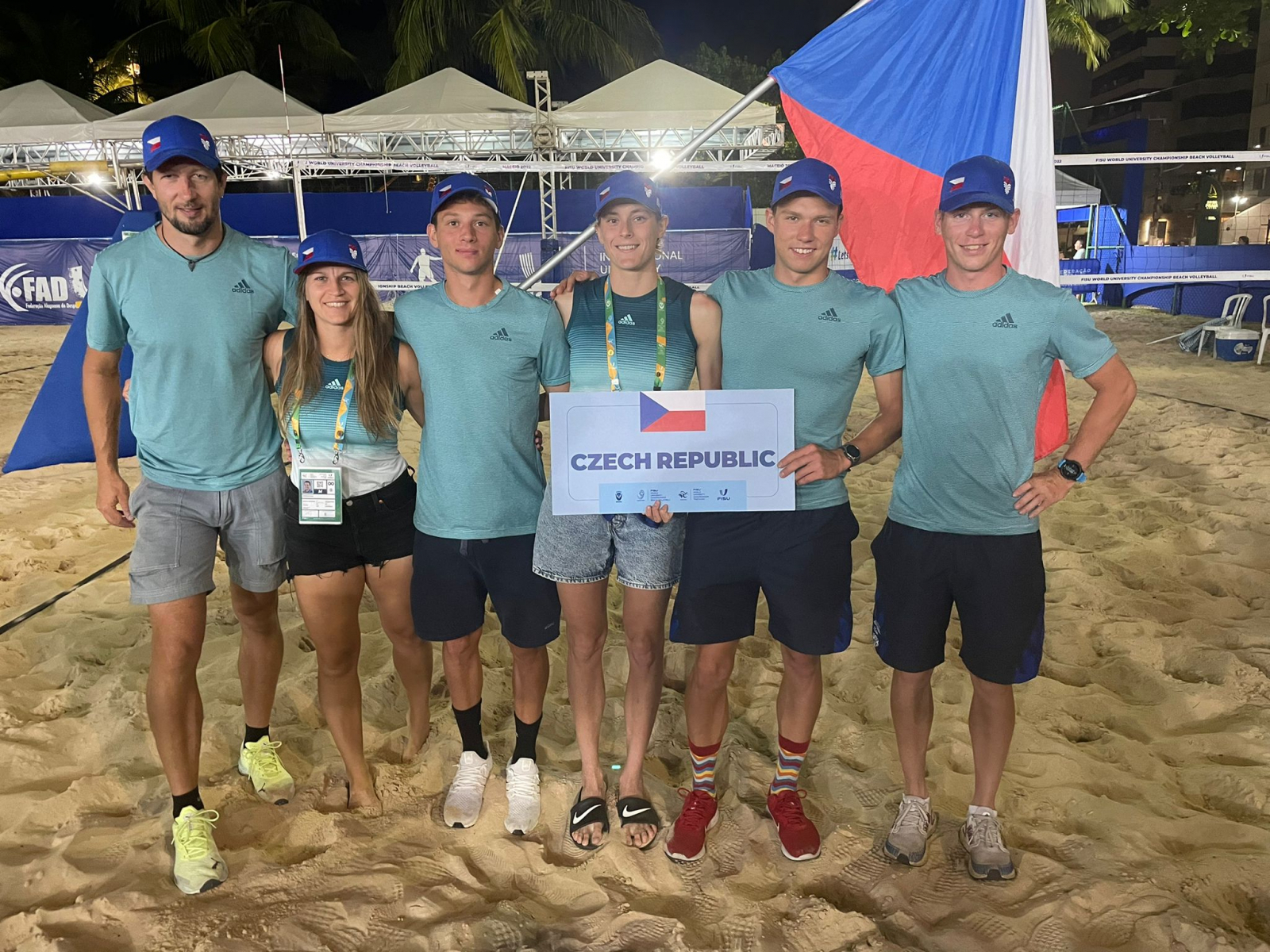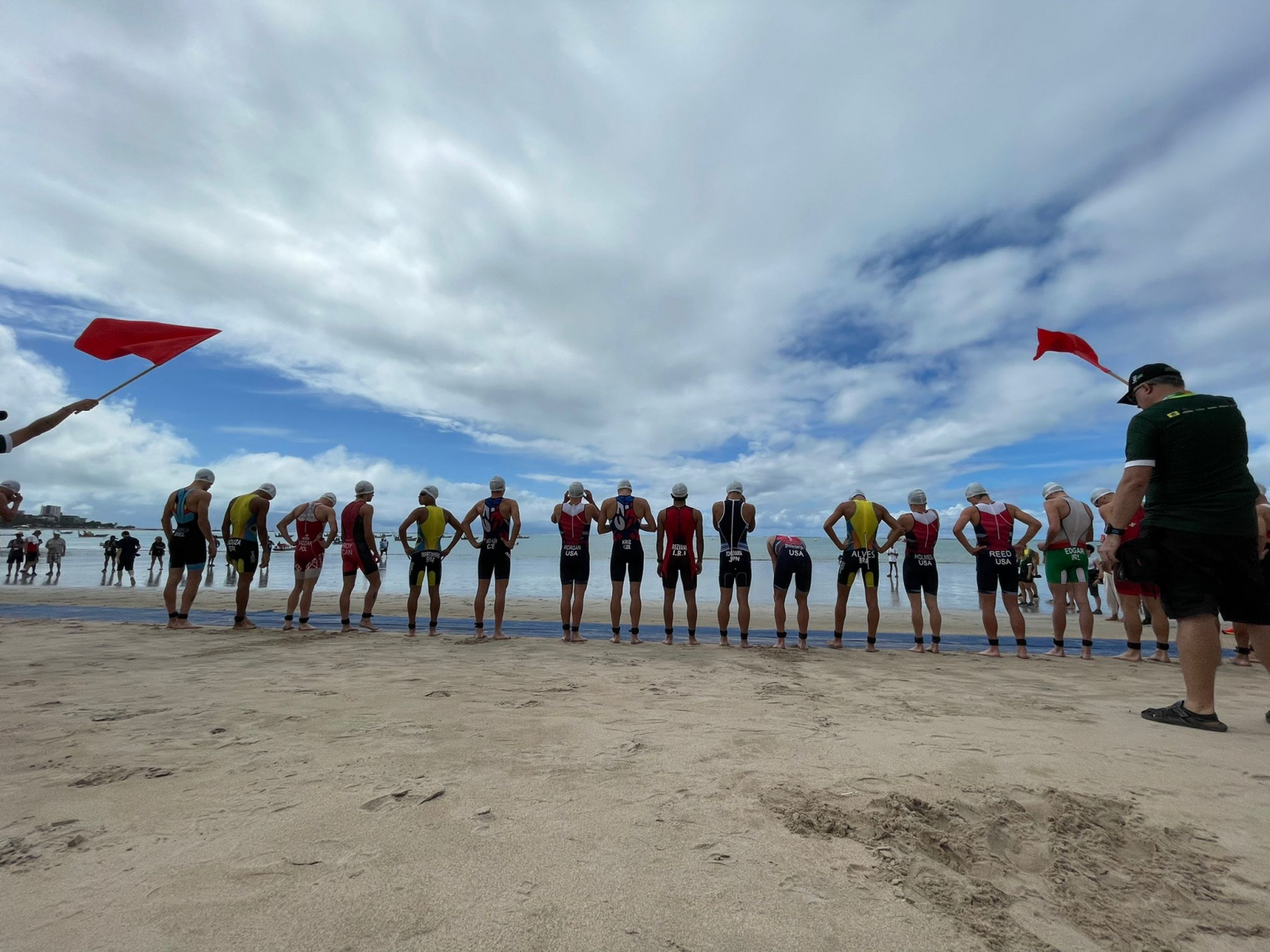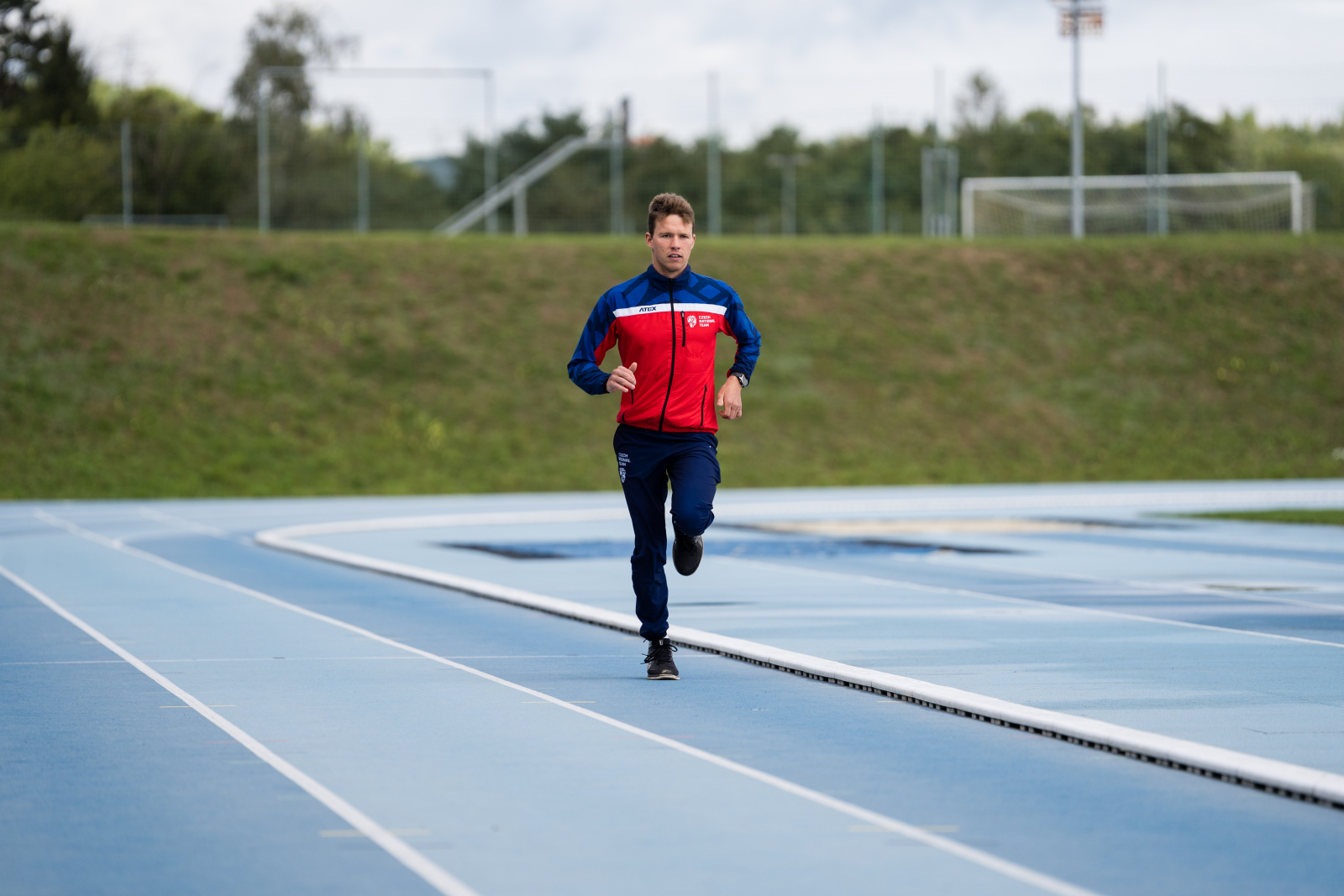Sport
Long season of triathlete Tomáš Kříž
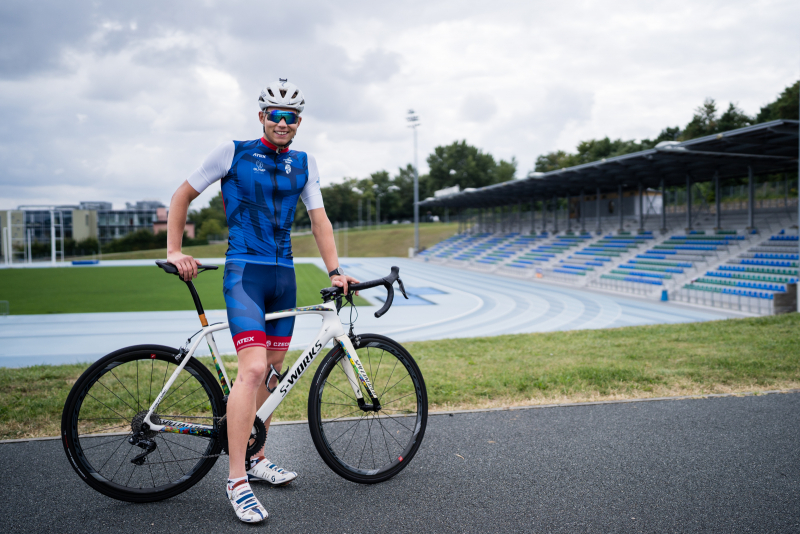
Although the racing season normally ends at the turn of August and September for triathlete Tomáš Kříž, who is one of the first graduates of the Sports Technology programme at CESA BUT, this year he will extend it until the end of November. His participation in the Academic World Championships, which took place in Maceió, Brazil, on the second weekend of September, earned him a great eighth place and thus a nomination for the World Championships, which will take place on 28 November in Abu Dhabi.
What made the race in Brazil special?
The fact that we were already there together with the beach volleyball players, which was nice, there was an opening ceremony, a parade with the Brazilian show and the officialities, but what surprised us even more was the poverty there. The beach is surrounded by hotels and palm trees, but as soon as you go a hundred meters inland you come across straw, people on the street, dirt, garbage. It wasn't until I returned that I read that Maceió is one of the five most dangerous cities in the world. Yet when we went out by bike to explore the city in the daytime, it seemed perfectly safe. The inconvenience right off the bat was that when we arrived at the hotel from the airport at night, we were told we wouldn't be checked in until the next day, so we spent the first night in a rather makeshift hotel.
That probably put a lot of strain on your acclimatisation and preparation...
Exactly. I had worked out quite a bit in advance how to acclimatise with the time change, so it did put a bit of a strain on things, but somehow we managed. Even though the race then saw probably the worst possible conditions. It rained, so it was extremely humid, and then the sun started shining, so it was so hot that I had a burnt suit on my back within an hour.
How was the race itself?
It was also extreme that we had a so-called beach start, where we started on the beach and got into the sea after about a hundred meters, because there was a high tide, and then the run to the depot was the same length. I'm not very good at sprints, so I lost a lot there, but I had pretty good swimming form, so I gradually got into the first group. After the swim, the race field usually splits into packs, which don't change much after that. So I rode and cycled in the first group, and in the end we arrived with a minute to spare and I managed to run into the depot in first place. Then in the run I didn't keep up with the best runners, on the one hand they were better runners, and on the other hand the weather didn't suit me - I prefer it to be rather cold. Overall it was a good race. Even though there was not the biggest competition, I was very satisfied.
Who will nominate you for the Academic Championships?
The nomination criteria are set by the Czech Triathlon Association, which is commissioned by the Czech Association of University Sport. It also paid the fees, which was a big help because Brazil is extremely expensive. Otherwise, we usually have a package of funds for the whole season, but that doesn't cover the cost of the races, so we have to dig into our own pockets. Triathlon is specific in that we get ranking points and without them we can't enter races, each athlete has to work it out for themselves. In Brazil I got enough points to get into the important races, that was essential. Today it is difficult to get to the World Cup. Olympic qualification has already started, the sport is becoming more popular and it's becoming more difficult to just get into the races, let alone succeed in them.
How was your season this year? And when does it start and end?
The classic triathlon season in the Czech Republic starts in May and ends in late August/September, but once you get to the top you race all over the world. So I did my first race in March in France, it was a special format inside an athletics hall, and I won't be finishing with the U23 World Championships until November 28. I'm now nominated there just by the result from Brazil.
Brazil has been the biggest success so far this season?
I guess so. Then there were some races in the Czech Republic where I placed at the top, but I didn't do that many this year. I had some decent placings at the European Cups, but I didn't do well at the European Championships, which were shortly before my state exams. My overall form dropped a lot in the run-up to the nationals, but then I spent six weeks at a mountain camp in Livigno, Italy, and got back into shape there.
You are one of the first graduates of the Sports Technology study programme, which is taught in cooperation between the Sports Activities Centre and FEKT and is the only accredited study programme in the country that combines sport and modern technology. With what idea did you enter the BUT?
I wanted to do something around sports, but I didn't want to go to a sports school. I did a technical lyceum before, so I wanted something more technical, which is why I chose the new programme at the BUT. What I was most interested in was physiology, anatomy and so on, because I'm also a coach.
So you have your charges?
I have one junior, one adult, and now I might recruit more, but I want to take it one step at a time so I don't have too much to do with school and sports together. I'd probably most like to get into coaching, but our schools are pretty bad at that. I'm now enrolled in Electronics and Communication Technology at FEKT, but I'm also looking a bit abroad. There are good schools in England, but after Brexit we no longer qualify for student loans, so I'm considering Denmark or Norway. There the master's is only for a year, it's twelve months straight, so it works out better financially too. Ideally I'd like to study Sports Science and Coaching or something like that.
But for now you are at the BUT, where you also receive a UNIS scholarship. How does it work?
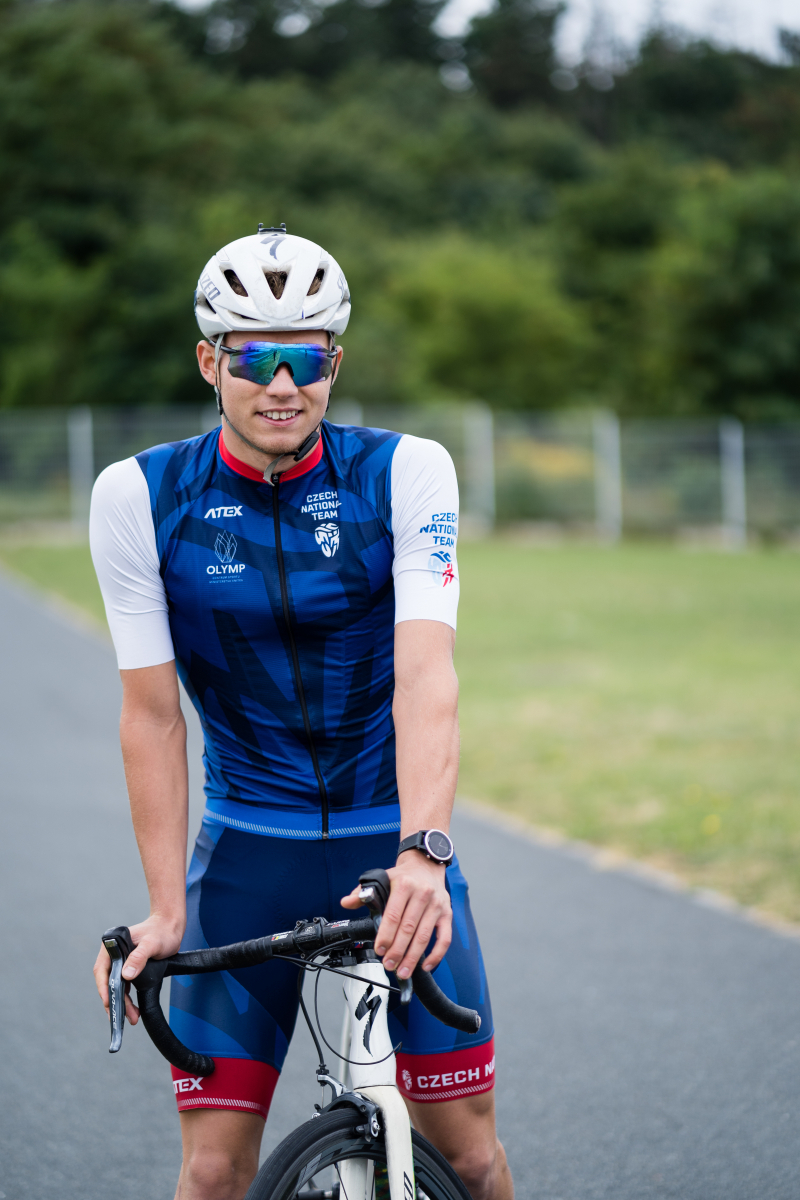
What's next for you in the sport?
We are four triathletes here in Brno and we train together. The last week of September we are going to Jordan for the Asian Cup, which is an Olympic triathlon (1500m swim, 40km bike, 10km run). Then we just turn around in Vienna and immediately fly to Uzbekistan for the next Asian Cup, which is also an Olympic triathlon. After returning should be a good preparation for the world championships. In Brno it is quite difficult to prepare for cycling even with the late date, so I don't know how we will approach it yet.
Who is in charge of the preparation?
For the four of us, it was provided by the Czech Triathlon Association, which pays for our accommodation and pool rentals, but everyone stays in their home club. In Brno, the programme is prepared by Honza Čelůstka, a former Olympian who retired from racing a year ago and started training.
Is it also your dream to become a coach?
I guess so, although it probably won't be easy. I'm gradually discovering that a lot of coaches in the sports world are pretty deranged, quite often unscrupulous and prone to sexually violent behaviour. Often they are the best coaches, so I don't know if you can break through with any other approach. Although there would be one example - the Norwegian coach who trains the Norwegian Olympic champion and other quality athletes. The way it works is that he gets a bundle of money with a brief to prepare the athletes well, and he decides everything himself. It's usually difficult here because with every decision the coach has to answer to someone and can't enforce his own concept - for example, my coach who went to school in England and had really great potential. He's been my mentor for about three years and I've moved on a lot thanks to him, but now he's given up. Coaching is a poorly paid job here, so he had so many mentees that it completely destroyed him and he's going to look for a normal job abroad.
You didn't find that an easy target. We'll keep our fingers crossed for the World Cup and your career!
(janan)
Study of technology and volleyball both require perseverance and discipline. BUT gives students the opportunity to excel in both.
Student Jan Jilčík collects medals in Brazilian jiu-jitsu and grappling tournaments
The Olympics fulfilled my lifelong dream, I want to win the next one, believes Kazakh climber from BUT
From a curious girl with technology in her genes to an engineer: Kateřina Mačišáková inspires future students at BUT
He was supposed to be an architect. But he studied electrical engineering and is now a recognized expert on optical systems in Canada
